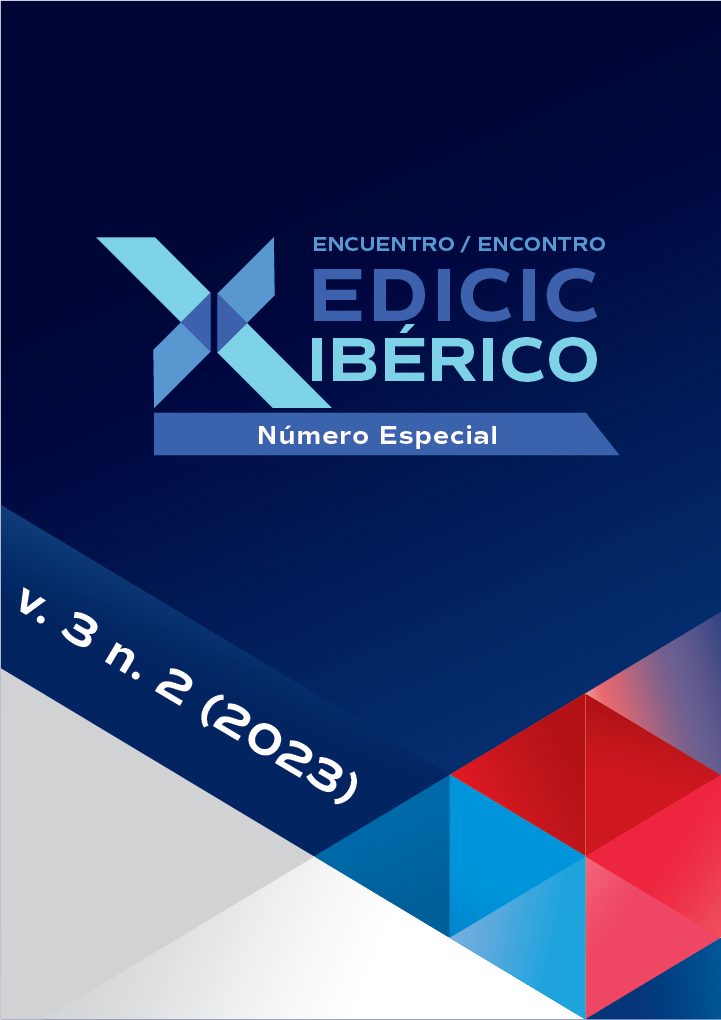Semantic representation of clinical data in healthcare: interoperability with FAIR data and the FHIR standard
DOI:
https://doi.org/10.62758/re.v3i2.218Keywords:
Fast Healthcare Interoperability Resources, Interoperability, Semantic Representation, Clinical Data, FAIR PrinciplesAbstract
It discusses how the context of the COVID-19 pandemic brought new challenges to the collection, processing and sharing of health data and the need for these data to be based on the Findable, Accessible, Interoperable, and Reusable principles. It aims to evaluate, among the different knowledge organization systems and vocabularies in the medical field, as well as the semantic representation schemes that treat clinical data originating from the Virus Outbreak Data Network Brasil project, as the components for representation of the Fast Healthcare Interoperability Resources standard can be used to incorporate improvements and align standards for use in the World Health Organization's COVID-19 semantic model. He cites the Virus Outbreak Data Network as an example of a project that collects and manages, through the World Health Organization's COVID-19 case registration form, data on COVID-19 in a manner aligned with Findable, Accessible, Interoperable, and Reusable principles. It talks about the World Health Organization's COVID-19 CRF Rapid Version semantic model used to standardize, in the semantic sense, the data collected. It discusses semantic interoperability and compatibility between information contexts and the Fast Healthcare Interoperability Resources standard and details its modules. It concludes that the Fast Healthcare Interoperability Resources Standard has greater detailed properties when compared to the World Health Organization's COVID-19 semantic model, that it is a standard with a more mature interoperability characteristic when compared to the Semantic Model, and the incorporation of its characteristics is recommended.
References
Bender, D., & Sartip, K (2013, June 20-22). HL7 FHIR: An Agile and RESTful approach to healthcare information exchange. [Proceedings of the 26th IEEE] International Symposium on Computer-Based Medical Systems, Porto, Portugal. https://doi.org/10.1109/cbms.2013.6627810 DOI: https://doi.org/10.1109/CBMS.2013.6627810
Bietenbeck, Andreas; Boeker, Martin; Chulz, Stefan. (2018). NPU, LOINC, and SNOMED CT: a comparison of terminologies for laboratory results reveals individual advantages and a lack of possibilities to encode interpretive comments. Journal of Laboratory Medicine, 42(6), 267-275. https://doi.org/10.1515/labmed-2018-0103 DOI: https://doi.org/10.1515/labmed-2018-0103
Brasil, Governo Federal do. (2023). Coronavírus. https://www.gov.br/saude/pt-br/coronavirus
Carlan, Eliana; Medeiros, Marisa Brascher Basílio. (2011). Sistemas de Organização do Conhecimento na visão da Ciência da Informação. Revista Ibero-Americana de Ciência da Informação, 4(2), 53–73. https://doi.org/10.26512/rici.v4.n2.2011.1675. DOI: https://doi.org/10.26512/rici.v4.n2.2011.1675
Go FAIR. (2023). Virus Outbreak Data Network (VODAN). https://www.go-fair.org/implementation-networks/overview/vodan/
HL7 FHIR. (2022). Conformance Module. http://hl7.org/fhir/conformance-module.html#5.0
HL7 FHIR. (2022). Foundation Module. http://hl7.org/fhir/foundation-module.html.
HL7 FHIR. (2022) Terminology Module. http://hl7.org/fhir/terminology-module.html.
HL7 FHIR. (2022) Welcome to FHIR. https://www.hl7.org/fhir/
Hodge, Gail. (2000). Systems of Knowledge Organization for Digital Libraries: Beyond Traditional Authority Files. https://www.clir.org/wp-content/uploads/sites/6/pub91.pdf.
Lima, Gercina Ângela De; Maculan, Benildes C. M. dos S. (2017). Estudo comparativo das estruturas semânticas em diferentes sistemas de organização do conhecimento. Ciência da Informação, 46(1), 60-72. https://doi.org/10.18225/ci.inf.v46i1.4014
Messa, J. A. F.; Campos, M. L. A. (2017, Outubro 23-27). Diretrizes para avaliação de domínios de conhecimento em tesauros: uma análise da atualidade temática do macrothesaurus brasileiro de direito constitucional. [Encontro Nacional de Pesquisa e Pós-graduação em Ciência da Informação]. ENANCIB 2017, Marília, UNESP. http://hdl.handle.net/20.500.11959/brapci/104642.
Michaelis (2023). Moderno dicionário da língua portuguesa. Melhoramentos.
Mons, B. (2020). The VODAN IN: support of a FAIR-based infrastructure for COVID-19. European Journal of Human Genetics, 28(6), 724–727. https://doi.org.10.1038/s41431-020-0635-7. DOI: https://doi.org/10.1038/s41431-020-0635-7
Rajput, Abdul Mateen; BALLOUT, Sarah; DRENKHAHN, Cora. (2020). Standardizing the unit of measurements in LOINC-coded laboratory tests can significantly improve semantic interoperability. IOS Press. https://ebooks.iospress.nl/doi/10.3233/SHTI200733. DOI: https://doi.org/10.3233/SHTI200733
Ramalho, Rogério Aparecido Sá. (2015). Análise do modelo de dados SKOS: Sistema de Organização do Conhecimento Simples para a Web. Revista Informação e 2(1), 66-79. https://periodicos.ufpb.br/ojs/index.php/itec/article/view/25995/14680.
Reisen, M. Oladipo, F., Stokmans, M., Mpezamihgo, M., Folorunso, S., Schultes, E., Basajja, M., Aktau, A., Amare, S. Y., Taye, G. T., Jat, P. H. P., Chindoza, K., Wirtz, M., Ghardallou, M., Stam, G., Ayele, W., Nalugala, R., Abdullahi, l., Osigwe, O., Musen, M. A. (2021). Design of a FAIR digital data health infrastructure in Africa for COVID‐19 reporting and research. Advanced Genetics, 2(2), 1-17. https://doi.org/10.1002/ggn2.10050. DOI: https://doi.org/10.1002/ggn2.10050
VEIGA, Viviane. Campos, M. L., Silva, C. R. L., Henning, P., Moreira, J. (2020) VODAN BR: a gestão de dados no enfrentamento da pandemia coronavírus. Páginas A&B, Arquivos e Bibliotecas (Portugal), 3(esp.), 51-58 Porto, v. 3, n. esp., p. 51–58. https://doi.org/10.21747/21836671/pagnespc7. DOI: https://doi.org/10.21747/21836671/pagnespc7
ZENG, Marcia Lei., Hong, Yi., Clunis, Julaine., He, Shaoyi., Colangelo, L. P. (2020). Implications of Knowledge Organization Systems for Health Information Exchange and Communication during the COVID-19 Pandemic. Data and Information Management, 4(3), 148–170. https://doi.org/10.2478/dim-2020-0009. DOI: https://doi.org/10.2478/dim-2020-0009
Wikipédia. (2021). Língua Franca. https://pt.wikipedia.org/wiki/L%C3%ADngua_franca
ZENG, Marcia Lei. (2008). Knowledge Organization Systems (KOS). Knowledge Organization, 35(2), 160–182. https://www.academia.edu/26672820/Knowledge_Organization_Systems_KOS. DOI: https://doi.org/10.5771/0943-7444-2008-2-3-160
Downloads
Published
How to Cite
Issue
Section
License
Copyright (c) 2023 Revista EDICIC

This work is licensed under a Creative Commons Attribution 4.0 International License.
The Association holds the copyright of the texts it publishes and, therefore, adopts a Creative Commons License, CC BY 4.0 DEED Attribution 4.0 International (https://creativecommons.org/
You are free to:
- Share: copy and redistribute the material in any medium or format for any purpose, even commercially.
- Adapt: remix, transform, and build upon the material for any purpose, even commercially.






